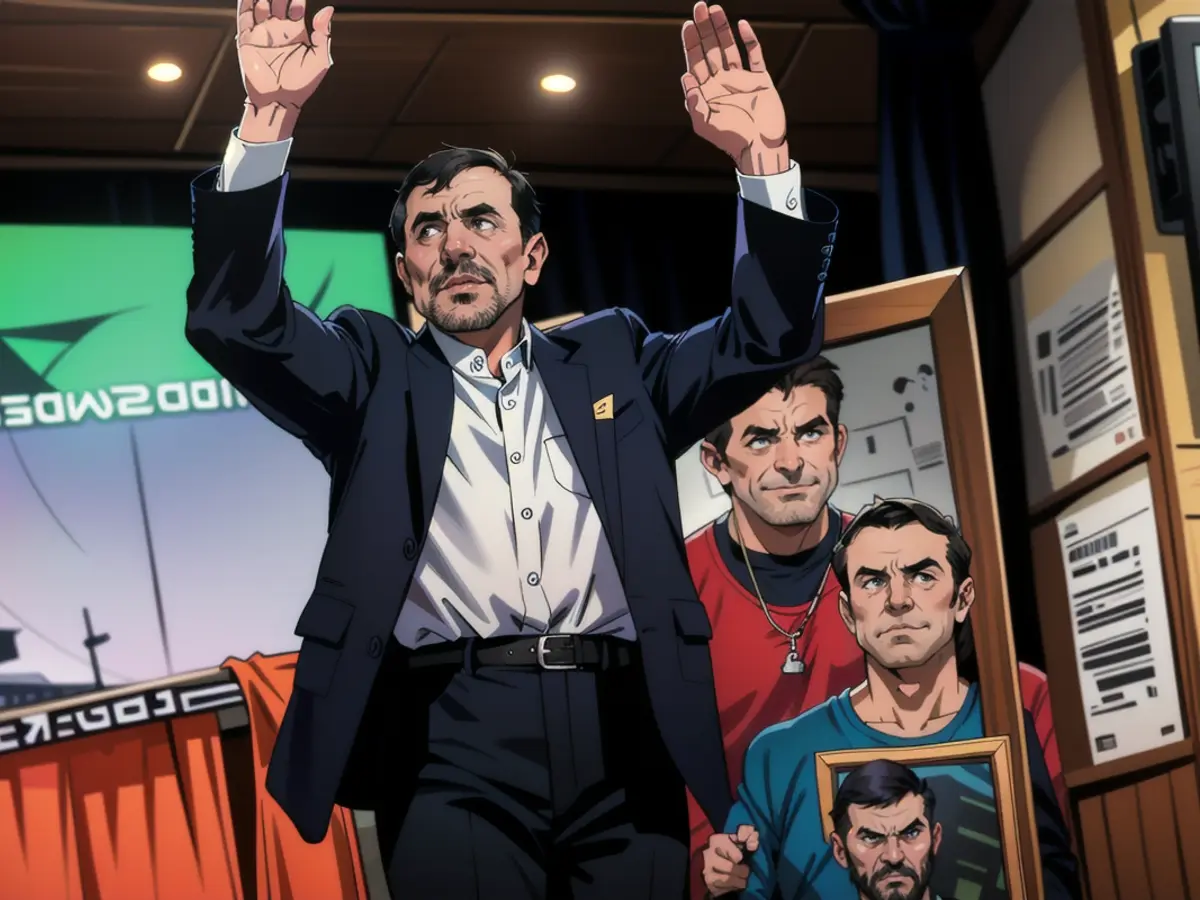Former Iranian President Ahmadinejad seeks reelection
"I'm certain that all the country's issues can be resolved if we fully utilize the national capabilities," stated Ahmadinejad upon registering his candidacy at Tehran's Interior Ministry. He previously held the presidency from 2005 to 2013, serving for two terms. In both 2021 and 2017, he was barred from participating in the election.
In 2005, Ahmadinejad gained international attention for declaring that "Israel must be erased." He also deemed the Holocaust a "fable." His contentious re-election in 2009 sparked widespread, nationwide protests, resulting in the killing of many and the arrest of thousands.
Earlier, former Revolutionary Guards commander Vahid Haghanian had registered for presidential candidacy, aiming to succeed Raisi. Haghanian, already under US sanctions since 2019, attributed his role within the inner circle of Iran's spiritual leader, Ayatollah Ali Khamenei, for his exclusion.
"My choice to run is a personal one, but I'm well-acquainted with the country's challenges," expressed Haghanian. "Throughout my 45-year tenure in the Presidential Administration and the Office of the Supreme Leader, I've developed strong connections with significant figures in government institutions."
Meanwhile, the former parliamentary speaker Ali Larijani,seen as moderate in foreign affairs, announced his campaign on Friday. If victorious, he vowed to tackle US sanctions and boost Iran's economy as his primary objectives.
Additionally, Abdolnasser Hemmati, a reform-leaning former central bank governor, declared his candidacy the same day. He had participated in the 2021 election, finishing 3rd with 8.4% of the votes.
Extremist ex-nuclear negotiator Saeed Jalili also expressed his desire to run for president.
Registration for presidential aspirants started on Thursday and continues until Monday. Following this period, the Guardian Council will review their eligibility, with a decision expected by June 11.
Badge: ○○○○☆☆☆☆☆
Read also:
Ahmadinejad, the former Iranian President, expressed his intention to seek reelection on Sunday, stating that all issues in the country could be resolved with national capabilities. Despite his past declarations, such as calling for the erasure of Israel in 2005 and questioning the Holocaust, his contentious re-election in 2009 led to widespread protests and many deaths and arrests. Vahid Haghanian, a former Revolutionary Guards commander, also registered for candidacy, attributing his exclusion to his role within Ayatollah Ali Khamenei's inner circle. Ali Larijani, a moderate in foreign affairs, announced his candidacy, aiming to tackle US sanctions and boost Iran's economy if elected. Abdolnasser Hemmati, a reform-leaning former central bank governor, also declared his candidacy, having finished third in the 2021 election. Saeed Jalili, an extremist ex-nuclear negotiator, expressed his desire to run for presidency. Registration for presidential aspirants began on Thursday and will continue until Monday, with the Guardian Council expected to review their eligibility by June 11.
In Iran, the Ministry of the Interior is responsible for overseeing the registration of presidential candidates, such as Ahmadinejad and Larijani, amidst the flurry of declarations and registration for the upcoming presidential election. This election will see a diverse range of candidates, from reform-leaning figures like Hemmati to hardline negotiators like Jalili, all vying for the opportunity to lead the country and navigate the challenges facing Iran, both domestically and internationally. The stakes are high in the upcoming presidential election in Iran, with significant implications for the country's foreign relations, economy, and internal stability, particularly in relation to contentious issues like Iran's nuclear program and its stance on Israel.







